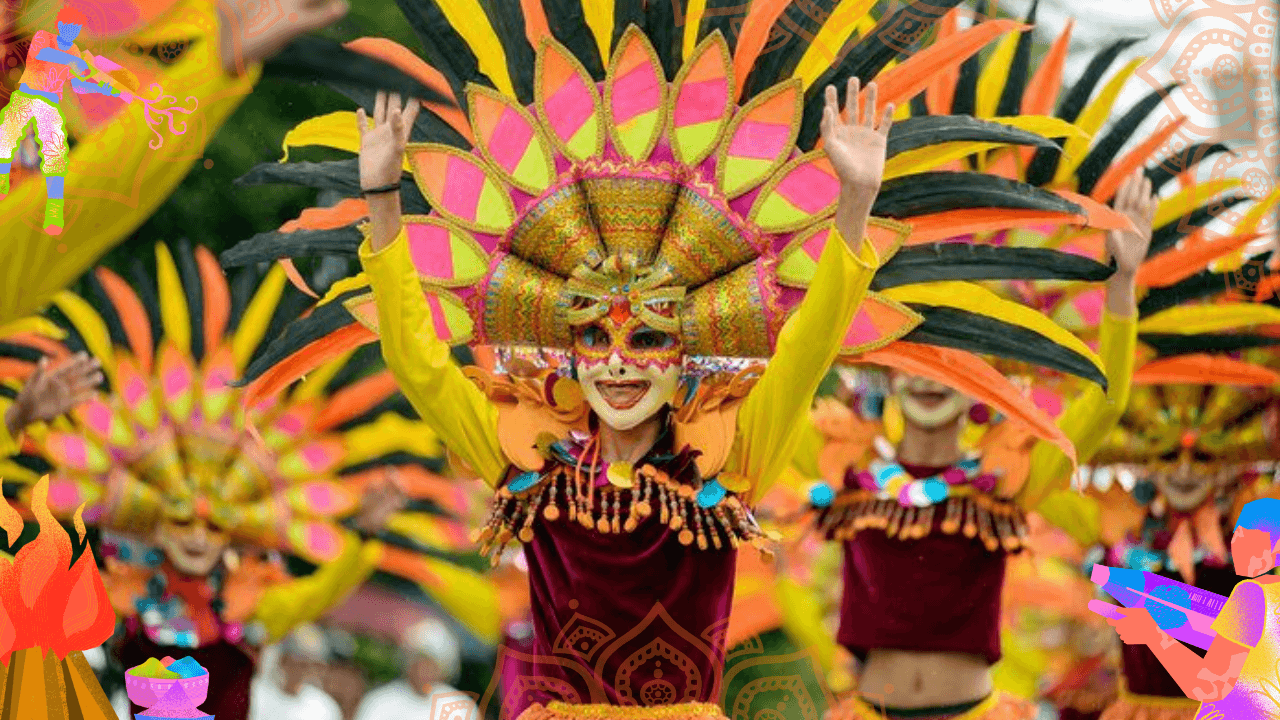Origins of the Masskara Festival
The Masskara Festival, a celebrated cultural event in Bacolod City, Philippines, has a rich history that dates back to the early 1980s. This vibrant festival emerged in response to significant socio-economic challenges, particularly the devastating sugar crisis that affected the local economy and the livelihoods of countless residents. At that time, Bacolod, renowned for its sugar production, experienced a downfall that led to widespread poverty and hardship. The struggles faced by the community were profound, with many families compelled to seek alternative sources of income and support.
In the midst of this adversity, the idea of the Masskara Festival took shape. Local leaders, recognizing the need for a unifying celebration, sought to inspire hope and resilience within the community. The inception of the festival coincided with the desire to uplift the spirits of the Bacoleños, encouraging them to embrace their creativity and innate sense of joy. Hence, the festival was designed as a response to the challenges, transforming what was once a season of despair into a vivid display of cultural pride and community strength.
Traditionally held in October, the Masskara Festival features a vibrant parade with participants adorned in colorful masks symbolizing happiness and optimism. The masks serve as a metaphorical representation of the spirit of the people, allowing them to conceal their struggles while expressing their creativity and joy. Over the years, this festival has grown in scale and significance, becoming a beacon of resilience that reflects the community’s ability to overcome adversity through artistic expression and communal celebration. The Masskara Festival is much more than an event; it is a testament to the enduring spirit of the Bacoleños, offering a glimpse into their rich cultural heritage in the face of challenges.
Significant Developments and Growth
The Masskara Festival, celebrated annually in Bacolod City, Philippines, has undergone remarkable evolution since its inception in the early 1980s. Initially established to uplift the spirits of the community following economic challenges, it has blossomed into a vibrant representation of local culture and resilience. One of the key developments in the festival’s history was the introduction of colorful costumes and elaborately crafted masks. Originally, the masks depicted somber expressions, symbolic of the hardships faced by the people. Over time, however, the design of these masks transitioned to feature bright colors and joyful motifs, embodying a spirit of hope and celebration.
Street dancing quickly became a central activity of the Masskara Festival, drawing in participants from various sectors of the community. This lively display not only showcased traditional music and dance but also fostered a sense of togetherness among locals and visitors alike. The local government played a pivotal role in the festival’s growth by providing support and resources, ensuring that the event would become a hallmark of Bacolod City’s identity. Their efforts helped to promote the Masskara Festival not just within the region but also on a national and international level. This increased visibility attracted tourists, further enhancing the festival’s significance and appeal.
The influence of globalization has also shaped the Masskara Festival’s trajectory. As cultural exchanges became more prevalent, the festival incorporated diverse elements such as contemporary art and international dance styles, allowing it to resonate with broader audiences. This fusion of tradition and modernity has ensured that the festival remains relevant and dynamic. Today, the Masskara Festival stands as a testament to the innovative spirit of Bacolod, symbolizing the city’s ability to transform challenges into a vibrant celebration of life. Visiting the festival has become essential for many, marking its status as a prominent cultural event that highlights the rich heritage of the Filipino people.
Cultural Significance and Artistic Expression
The Masskara Festival, celebrated annually in Bacolod City, Philippines, represents more than just a vibrant display of colors and merriment; it is a rich tapestry of cultural significance that intertwines the historical and traditional narratives of the region. Stemming from its inception in 1980 during a period of economic struggle, the festival has evolved into a profound expression of Bacolod’s resilient spirit and the enduring Filipino identity.
At its core, the Masskara Festival is a manifestation of artistry, where local artisans dedicate their talents to create the iconic masks that are central to the celebrations. These masks, adorned with intricate designs and vivid colors, symbolize joy and optimism, serving as a stark reminder of hope amid adversity. The creativity involved in crafting these masks reflects the artistic expression prevalent within Bacolod’s culture, as each mask tells a unique story that resonates with the community’s past and aspirations for the future.
The festival features a range of performances, from traditional dances to contemporary shows, all designed to entertain and engage both locals and visitors. These performances highlight the richness of Bacolod’s cultural heritage and offer a platform for local artists to showcase their talents. Communities come together to participate in lively parades, lively street dancing, and music, reinforcing a sense of unity and pride among the participants. Through the Masskara Festival, residents celebrate not only their individuality but also their collective identity, fostering a strong communal bond.
Ultimately, the Masskara Festival serves as a vital conduit for cultural exchange, artistic expression, and community solidarity, making its significance far-reaching and enduring. By embracing its rich history and traditions, Bacolod continues to honor its heritage, all while inviting the world to experience the beauty of Filipino culture.
Modern Day Celebrations and Future Prospects
The Masskara Festival, which originated in the 1980s in Bacolod City, has evolved significantly over the years, adapting to contemporary societal changes while retaining its cultural essence. Today, the festival is celebrated with a vibrant mix of traditional and modern elements, reflecting the community’s resilience and adaptability. One of the key components of the modern Masskara Festival is the incorporation of technology in its celebrations. Social media platforms serve as vital channels for promoting the festival, allowing local artists and communities to showcase their creativity and connect with a global audience.
In recent years, the festival organizers have also made efforts to enhance participants’ experiences through various activities such as street dance competitions, food fairs, and cultural exhibits. These events not only showcase the local culture but also promote economic opportunities for small businesses and entrepreneurs in the region. The significance of the Masskara Festival as an economic driver is amplified during these modern-day celebrations, as it draws tourists from different regions and promotes Bacolod as a cultural tourism destination.
However, the COVID-19 pandemic posed substantial challenges to the festival’s continuity. In response, organizers implemented safety protocols, including hybrid formats combining virtual and in-person events. This innovation highlighted the Masskara Festival’s commitment to thrive despite adversities while maintaining a strong sense of community. Looking forward, there is great potential for the festival to grow further, with initiatives focused on sustainability and local engagement. Collaborative efforts with local government units and stakeholders can enhance the festival’s scope, ensuring it continues to thrive as a cultural celebration. Ultimately, the Masskara Festival represents not only a vibrant display of Bacolod’s heritage but also a beacon of hope and resilience for future generations.





